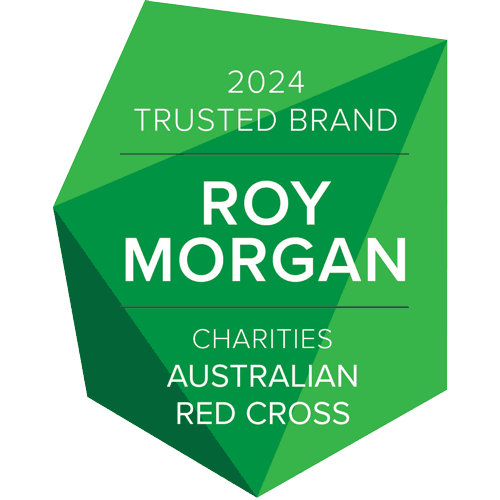Coping with climate anxiety
In the face of a seemingly intractable problem, some advice to help you think, take action, and cope.

Climate change is an existential threat, and for many, amid the constant cycle of negative news, this leads to a loss of hope, and increasing despair.
My friend and colleague Shona Whitton and I were talking about how the coverage we are seeing is very similar to the coverage we might see in traumatic events and major disasters. Wall-to-wall, negatively framed media articles. This media storm creates the sense of being overwhelmed.
Climate anxiety is a sense of dread. Melanie Powell from the Red Cross Red Crescent Psychosocial Reference Centre describes it as ongoing or chronic fear of environmental doom. It can apply to past, present or future events.
As climate change scientist Roop Singh, from our Climate Centre, talks about it as type of darkness. I have sat with meteorologists and climatologists who also describe this sense of stress, dread and frustration. They can see what is happening, but their fears are not taken seriously enough.
As with any stressful situation, people display a range of emotions from denial, avoidance, stress reactions, a deep sense of grief, through to engagement and activism. This is important to recognise as there is no one-size-fits-all approach.
So, in the face of what seems to be a seemingly intractable problem, what can we do? The Australian Psychology Society has a range of advice that helps people think, take action, and cope.
Steps to take action
Recognise
Firstly, recognising that it is causing stress and anxiety is important. This helps normalise the feelings. It is a normal reaction to an uncertain situation.
Limit
Limit exposure to climate-related content. Get what you need to know from the news, then take a break. Rest your brain. We can become cognitively overloaded, and this is no use to us.
Practise
Practise self-care. You know the drum: healthy eating, exercise, positive connections, pleasurable activities.
Connect
Get into nature. Being in the environment is restorative. Get your fill of green (park/forest) or blue (sea/sky). Even in cities we can do this – use parks or backyards, lie down and look at the sky, and the wonder of the shapes of clouds.
Act
Get involved. Take action. This helps with overcoming the sense of ‘it’s too big, and I can’t do anything about it’.
People who took part in a climate change adaptation program we ran in Adelaide reported that joining the group and taking adaptation action helped them feel in control. Joining groups helps set collective actions, helps you talk about what is going on, and is generally a good thing to do for your wellbeing, anyway.
Reduce
Reduce your environmental footprint, from heating to eating to transport, there are many adjustments you can make. They can be small steps, as Lao Tzu said, the journey of a thousand miles begins with a single step.
We put solar panels on our roof 12 years ago, and at the time this sort of action was derided as virtue signalling. Now rooftop solar is a major disruptor in the energy system, and accelerating the transition to clean renewable sources.
Talk
Talk to your local councillors and politicians about climate change so they know it’s an issue you care about.
Find hope
Cultivate active hope. Melanie Powell describes this as having a two-fold benefit. By taking action, you not only reduce your anxieties, but you also make a positive contribution to the fixing the problem. Jeff Goodell’s fabulous Rolling Stone piece outlines what we have already achieved with addressing climate change, which is a lot (still more hard yards in front of us, though).
Hope is one of the pillars of psychosocial support. As humans we are used to adversity, we change and adapt. We are also resourceful and problem solvers. Yes, we are now at the business end of addressing climate change, but urgency also helps focus us.
While the IPCC’s latest report was grim, they also said we are still in the control room, as long as we take urgent and deep action.
This is what gives me a glimmer of hope.
And what we are seeing is kids, people, businesses, and various levels of governments taking leadership and action, and perhaps starting to shift the dial in the control room.
Climate change action
By Chris Kwong, Head of Strategic Initiatives – including Sustainability and Climate Change.
The humanitarian cost of climate change
A new Red Cross report outlines the human toll and financial costs of doing nothing as natural disasters increase as a result of climate change.
Climate change is a humanitarian issue
We need to act now to support communities adapt to a changing climate. Every day at Australian Red Cross, we witness the human impacts of extreme weather. In particular, we see the detrimental health and social impacts brought on by more frequent and intense disasters and crises.
